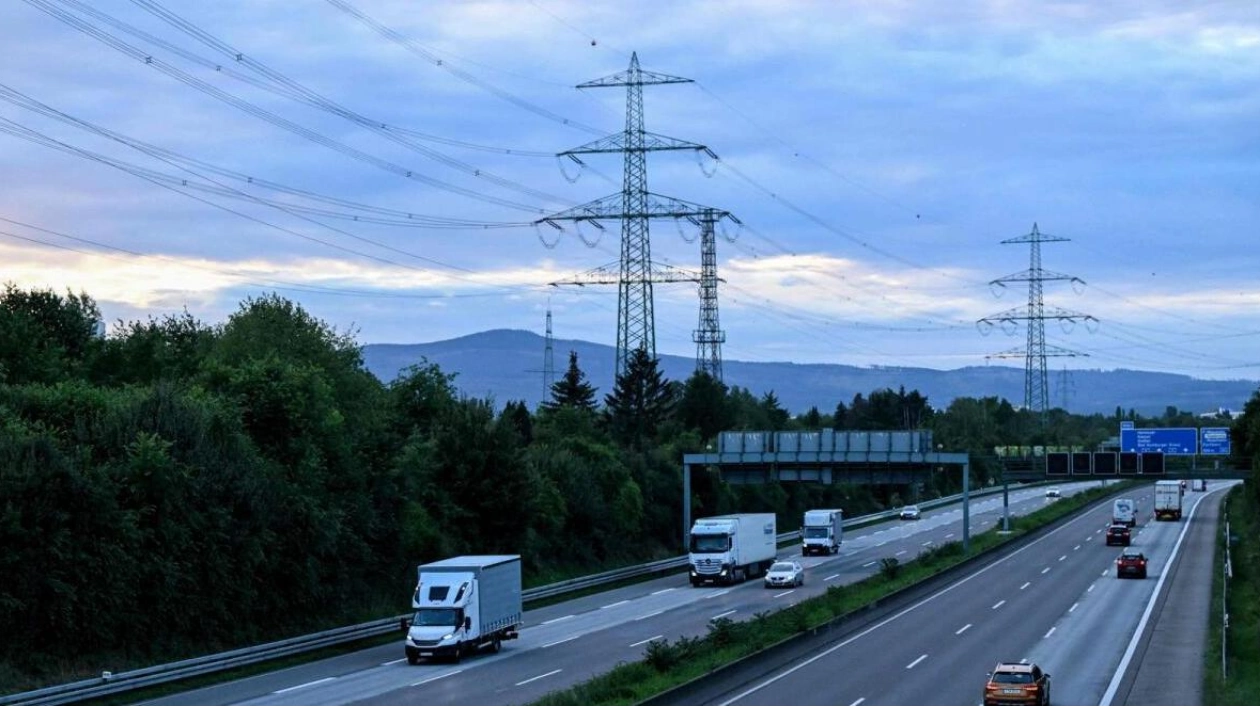A proposal to construct Germany's largest motorway has ignited controversy, with critics expressing fears that this 'monstrosity' will escalate climate-harming emissions, intensify noise pollution, and damage ecologically diverse environments.
The suggestion involves expanding a segment of the A5 near the western city of Frankfurt to 10 lanes, with an estimated price tag of 1.1 billion euros ($1.2 billion). Supporters argue that this is essential to manage anticipated traffic growth on one of Germany's most congested motorway sections, but it has struck a chord amidst growing climate crisis concerns.
Hans Christoph Stoodt, from a campaign group opposing the plans, called the idea 'completely crazy', noting it would result in a 'monstrosity'. 'The German government has pledged to make Germany climate-neutral by 2045... and the same government is planning a 10-lane motorway here,' he told AFP. 'We need to enhance public transport and significantly cut down on private, fossil fuel-driven motorized transport.'
The proposal was outlined in a feasibility study commissioned by state-owned Autobahn GmbH, which oversees the country's motorways, and was only made public recently due to pressure from activists. Authorities have emphasized that they are still deliberating on the matter. The transport ministry in Berlin stated that the study does not signify a final decision and will merely be part of their considerations.
The affected stretch, approximately 30 kilometers (18 miles) from a junction near the city's airport to the town of Friedberg to the north, currently has either six or eight lanes. The study contends that the extension is necessary to handle impending traffic increases. Already congested during peak times, the A5 is projected to become even more crowded, with about 200,000 cars anticipated daily by 2030, according to the study.
However, Stoodt cited numerous other issues that would arise from widening the highway. Houses near the motorway would need to be demolished for additional lanes, said the 69-year-old, who resides in the Griesheim area of Frankfurt near the motorway. Despite high barriers intended to reduce noise, the continuous rumbling of traffic already exceeds permitted levels and would only worsen with an extension, said Stoodt, whose group is named 'It is too loud'.
Stefan Gegner, who spearheaded legal efforts to compel Autobahn GmbH to release the study, lives in a house just 50 meters (160 feet) from the motorway and reports that the traffic noise is already very loud. He fears that adding more lanes would exacerbate the noise and bring the barriers right up to his house, transforming the area into a construction site for several years.
Stoodt is also concerned about the environmental impact on the local area, as the proposed expansion passes through an area that supplies drinking water and hosts a bird sanctuary. The study, however, asserts that there are no 'insurmountable environmental obstacles' to widening the motorway.
In its findings, the study concludes that expanding the section of the motorway to 10 lanes is the only examined option that would 'achieve sufficient capacity' to manage expected traffic increases. A federal government transport plan also envisions expanding sections of the A5, although the study's proposal goes further.
Authorities have issued mixed messages. Frankfurt city officials have vehemently opposed the 10-lane widening. The government of the state of Hesse, where Frankfurt is located, has stated it is not against the idea, provided the road is covered with some kind of enclosure to reduce noise. Ultimately, the decision lies with the transport ministry in Berlin, led by the motorway-friendly FDP party.
A ministry spokeswoman noted that, in addition to traffic flow, factors including environmental impacts, air pollution, and noise will be considered. However, the expansion has not been ruled out. An 'overall concept' will now be developed regarding any potential widening, taking into account the feasibility study as well as other factors like updated traffic studies.






